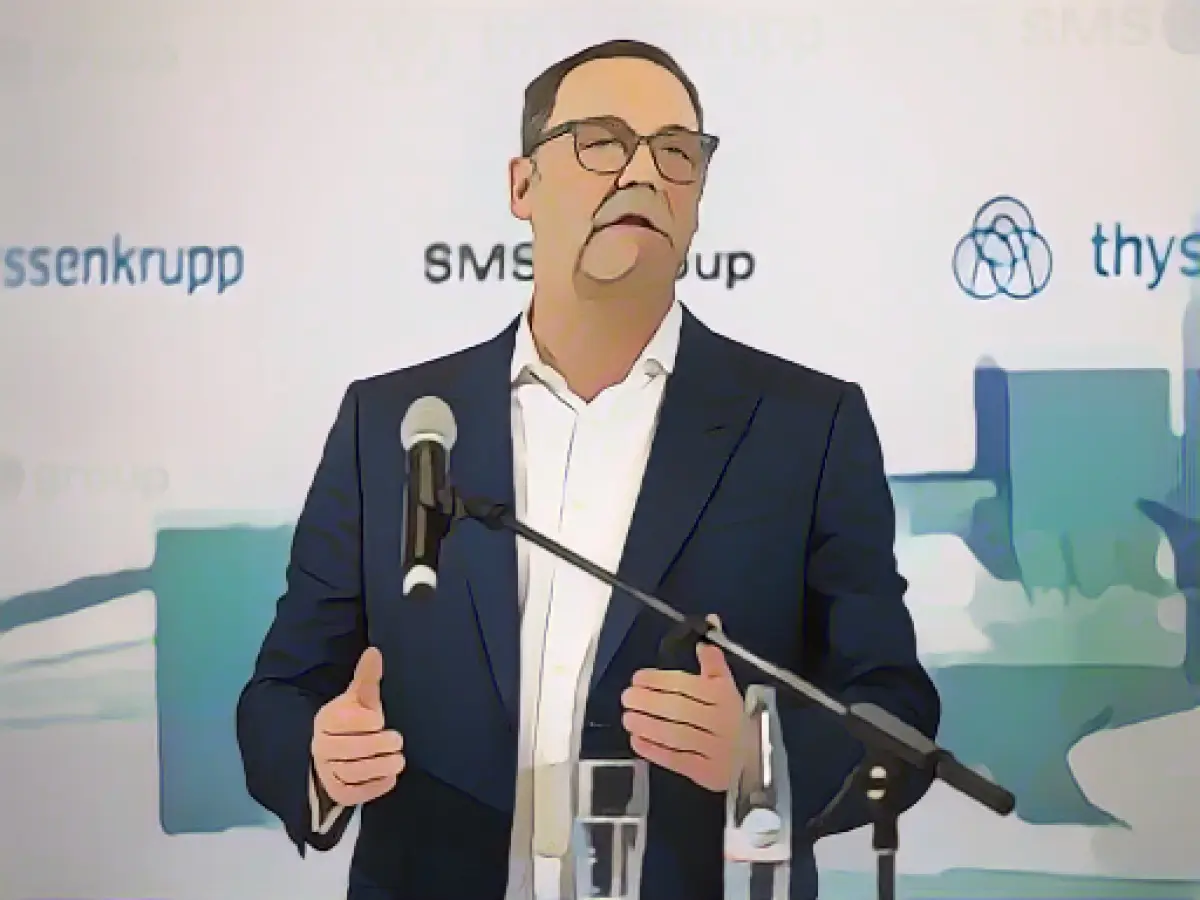Thyssenkrupp Steel's CEO, Bernhard Osburg, urgently calls for a "transformation summit" with the Federal Chancellor Olaf Scholz, following the Federal Constitutional Court's budget ruling. Osburg believes the event is crucial to ensure Germany's industrial transformation doesn't stumble, stating that neglecting this could force the nation to forgo its climate targets.
As Germany's largest steel producer, Thyssenkrupp Steel relies heavily on the climate transformation fund for its transformation initiatives, like the development of the hydrogen core network and construction of a direct reduction plant. However, the court's decision has rendered the fund unavailable, leaving an urgent funding gap.
Speaking in Duisburg, Osburg emphasized the extreme repercussions of this funding gap. Climate protection agreements, hydrogen transport infrastructure development, and power plant capacity expansion are all at risk. Without immediate action, Germany may miss the opportunity to reduce its carbon footprint and meet its climate targets.
In response to Thyssenkrupp Steel's urgent needs, alternative funding sources exist. For instance, the European Commission's "Important Project of Common European Interest (IPCEI)" classification offers substantial funding. Thyssenkrupp could also explore partnerships with private investors, government grants and subsidies, or EU funding mechanisms.
Public-private partnerships, green loans, and sustainability bonds are other potential funding options. Carbon pricing mechanisms can also contribute to the overall financial viability of Thyssenkrupp's green steel projects. Incorporating these funding strategies can help steer Thyssenkrupp Steel through the challenges of decarbonization and economic uncertainty, aligning with Europe's broader strategy to achieve carbon neutrality by 2050.
In summary, Thyssenkrupp Steel's reliance on the climate transformation fund following the court's decision has left a funding gap, which, if unaddressed, could jeopardize Germany's green transformation. Overcoming this obstacle requires both political debate and concrete action. Alternative funding sources, like IPCEI, government grants, private investments, and EU funding mechanisms, provide options for Thyssenkrupp to secure its industrial transformation.








